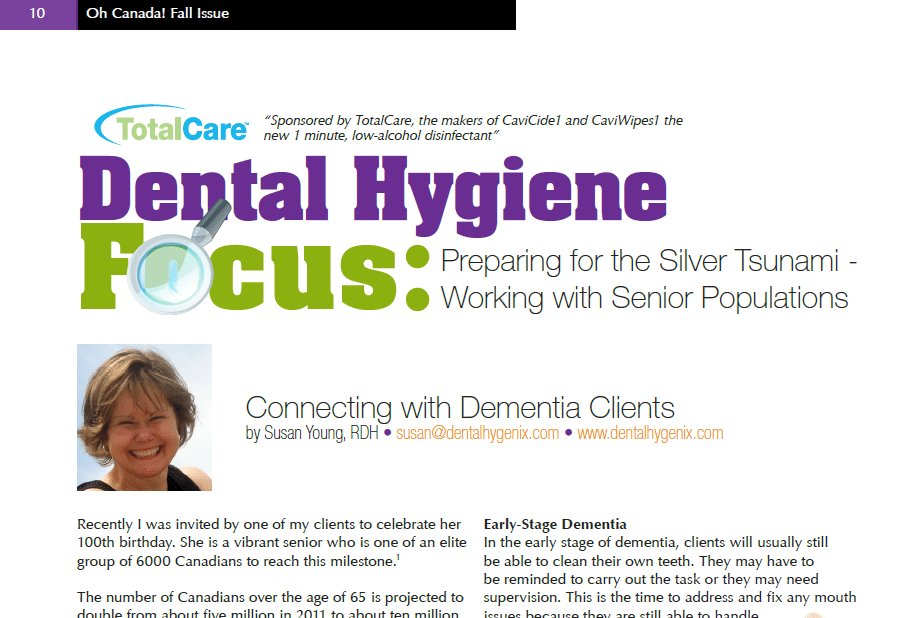MEMBER ONLY: The Canadian Dental Hygienists Association recently published a great set of articles in the most recent edition of their member magazine. The articles focused on how to treat patients with dementia and the importance of good oral hygiene for seniors. They have kindly agreed to share those articles with members of the BCCPA. Here is an excerpt: 
Practical Techniques
Working with clients affected by dementia, I have learned some techniques that have helped to make the dental care visit a more favourable and pleasant experience.
Approach your client from the front
As dementia progresses, the field of vision decreases and hearing becomes more conical. Always talk to clients from directly in front as their vision is like a television screen that keeps decreasing in size as time progresses. Approaching them from behind can profoundly startle and agitate.
Move slowly and calmly
Smile and use a gentle touch
Speak slowly and softly in short sentences
If you use long sentences, by the time you get to the end,your client will have forgotten the beginning.
Sing to your clients
Often I sing my instructions, which makes clients laugh and open their mouth for me.
Use facial expressions
As much as 90 per cent of our communication takes place through non-verbal cues, such as gestures, facial expressions, and touch.9 Your clients often watch your face for visual clues of what you are trying to communicate, so whenever possible let them see the communication triangle formed by your eyes and mouth.
Be aware of personal space
Clients with dementia can be very space sensitive so be aware as you work in an individual’s intimate zone.
Offer guidance not choices
When talking to someone with dementia, rather than asking a yes or no question, offer guidance like: “Mrs. Jones, we are going to brush your teeth now.”
Avoid stressful situations
- Be aware of situations in your surroundings that may cause stress to your client, such as
- Unfamiliar territory, people, procedures, sounds, smells.
- Physical pain, positioning, swallowing, hearing, vision, temperature, tiredness.
- Mental confusion, disorientation, poor processing, hallucinations, paranoia.
To read the full set of articles, you can click here. Once again, thanks to the CDHA for sharing this with our members.



